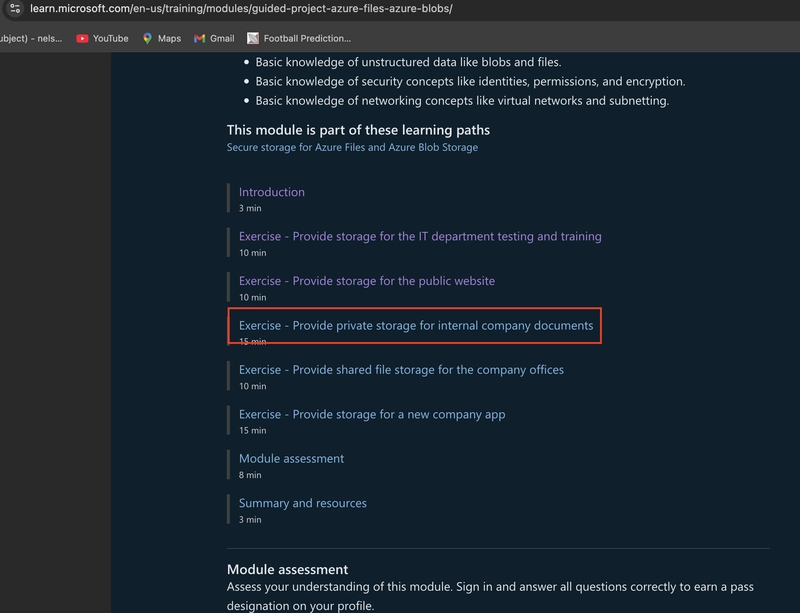FastAPI: A Comprehensive Guide
FastAPI is a modern, fast (high-performance), web framework for building APIs with Python 3.7+ based on standard Python type hints. In this guide, we'll walk through setting up FastAPI and implementing all the basic CRUD operations. Installation and Setup First, let's set up a virtual environment and install FastAPI: Create a virtual environment python -m venv venv Activate the virtual environment On Windows: venv\Scripts\activate On macOS/Linux: source venv/bin/activate Install FastAPI with all dependencies pip install "fastapi[standard]" Basic FastAPI Application Let's create a movie API example instead of books. Create a file called app.py: from fastapi import FastAPI app = FastAPI() MOVIES = [ {"title": "Inception", "director": "Christopher Nolan", "genre": "sci-fi"}, {"title": "The Shawshank Redemption", "director": "Frank Darabont", "genre": "drama"}, {"title": "The Dark Knight", "director": "Christopher Nolan", "genre": "action"}, {"title": "Pulp Fiction", "director": "Quentin Tarantino", "genre": "crime"}, {"title": "Parasite", "director": "Bong Joon-ho", "genre": "drama"} ] Running the Application Start the server with: uvicorn app:app --reload The --reload flag enables auto-reload when you make code changes. Visit http://127.0.0.1:8000/docs to see the interactive Swagger UI documentation. Implementing CRUD Operations 1. GET Request (Read All) @app.get('/movies') async def read_all_movies(): return MOVIES This endpoint returns the entire list of movies. The @app.get decorator defines a GET request at the /movies endpoint 2. Path Parameters (Read One) @app.get('/movies/{movie_title}') async def get_movie(movie_title: str): for movie in MOVIES: if movie.get("title").casefold() == movie_title.casefold(): return movie return {"error": "Movie not found"} This endpoint retrieves a single movie by its title. The {movie_title} in the path is a path parameter that captures the movie title from the URL. 3. Query Parameters (Filtering) @app.get('/movies/') async def read_movies_by_genre(genre: str): movies_to_return = [] for movie in MOVIES: if movie.get('genre').casefold() == genre.casefold(): movies_to_return.append(movie) return movies_to_return if movies_to_return else {"message": "No movies found in this genre"} This endpoint filters movies by genre using a query parameter. The genre parameter is passed in the URL as a query string (e.g., /movies/?genre=drama). 4. POST Request (Create) from fastapi import Body @app.post('/movies/create_movie') async def create_movie(new_movie=Body()): MOVIES.append(new_movie) return {"message": "Movie added successfully", "movie": new_movie} This endpoint adds a new movie to the list. The Body dependency extracts the JSON body from the request, which contains the new movie's details. 5. PUT Request (Update) @app.put('/movies/update_movie') async def update_movie(updated_movie=Body()): for i in range(len(MOVIES)): if MOVIES[i].get('title').casefold() == updated_movie.get('title').casefold(): MOVIES[i] = updated_movie return {"message": "Movie updated successfully"} return {"error": "Movie not found"} This endpoint updates an existing movie's details. It searches for the movie by title and replaces it with the updated movie data. 6. DELETE Request @app.delete('/movies/delete_movie/{movie_title}') async def delete_movie(movie_title: str): for i in range(len(MOVIES)): if MOVIES[i].get('title').casefold() == movie_title.casefold(): deleted_movie = MOVIES.pop(i) return {"message": "Movie deleted successfully", "deleted_movie": deleted_movie} return {"error": "Movie not found"} This endpoint deletes a movie by its title. It searches for the movie and removes it from the list if found. Best Practices Always use virtual environments Organize your code with routers as your app grows Add input validation using Pydantic models Implement proper error handling Consider adding authentication for production APIs

FastAPI is a modern, fast (high-performance), web framework for building APIs with Python 3.7+ based on standard Python type hints. In this guide, we'll walk through setting up FastAPI and implementing all the basic CRUD operations.
Installation and Setup
First, let's set up a virtual environment and install FastAPI:
Create a virtual environment
python -m venv venv
Activate the virtual environment
On Windows:
venv\Scripts\activate
On macOS/Linux:
source venv/bin/activate
Install FastAPI with all dependencies
pip install "fastapi[standard]"
Basic FastAPI Application
Let's create a movie API example instead of books. Create a file called app.py:
from fastapi import FastAPI
app = FastAPI()
MOVIES = [
{"title": "Inception", "director": "Christopher Nolan", "genre": "sci-fi"},
{"title": "The Shawshank Redemption", "director": "Frank Darabont", "genre": "drama"},
{"title": "The Dark Knight", "director": "Christopher Nolan", "genre": "action"},
{"title": "Pulp Fiction", "director": "Quentin Tarantino", "genre": "crime"},
{"title": "Parasite", "director": "Bong Joon-ho", "genre": "drama"}
]
Running the Application
Start the server with:
uvicorn app:app --reload
The --reload flag enables auto-reload when you make code changes.
Visit http://127.0.0.1:8000/docs to see the interactive Swagger UI documentation.
Implementing CRUD Operations
1. GET Request (Read All)
@app.get('/movies')
async def read_all_movies():
return MOVIES
This endpoint returns the entire list of movies. The @app.get decorator defines a GET request at the /movies endpoint
2. Path Parameters (Read One)
@app.get('/movies/{movie_title}')
async def get_movie(movie_title: str):
for movie in MOVIES:
if movie.get("title").casefold() == movie_title.casefold():
return movie
return {"error": "Movie not found"}
This endpoint retrieves a single movie by its title. The {movie_title} in the path is a path parameter that captures the movie title from the URL.
3. Query Parameters (Filtering)
@app.get('/movies/')
async def read_movies_by_genre(genre: str):
movies_to_return = []
for movie in MOVIES:
if movie.get('genre').casefold() == genre.casefold():
movies_to_return.append(movie)
return movies_to_return if movies_to_return else {"message": "No movies found in this genre"}
This endpoint filters movies by genre using a query parameter. The genre parameter is passed in the URL as a query string (e.g., /movies/?genre=drama).
4. POST Request (Create)
from fastapi import Body
@app.post('/movies/create_movie')
async def create_movie(new_movie=Body()):
MOVIES.append(new_movie)
return {"message": "Movie added successfully", "movie": new_movie}
This endpoint adds a new movie to the list. The Body dependency extracts the JSON body from the request, which contains the new movie's details.
5. PUT Request (Update)
@app.put('/movies/update_movie')
async def update_movie(updated_movie=Body()):
for i in range(len(MOVIES)):
if MOVIES[i].get('title').casefold() == updated_movie.get('title').casefold():
MOVIES[i] = updated_movie
return {"message": "Movie updated successfully"}
return {"error": "Movie not found"}
This endpoint updates an existing movie's details. It searches for the movie by title and replaces it with the updated movie data.
6. DELETE Request
@app.delete('/movies/delete_movie/{movie_title}')
async def delete_movie(movie_title: str):
for i in range(len(MOVIES)):
if MOVIES[i].get('title').casefold() == movie_title.casefold():
deleted_movie = MOVIES.pop(i)
return {"message": "Movie deleted successfully", "deleted_movie": deleted_movie}
return {"error": "Movie not found"}
This endpoint deletes a movie by its title. It searches for the movie and removes it from the list if found.
Best Practices
- Always use virtual environments
- Organize your code with routers as your app grows
- Add input validation using Pydantic models
- Implement proper error handling
- Consider adding authentication for production APIs











































































































































































![[The AI Show Episode 142]: ChatGPT’s New Image Generator, Studio Ghibli Craze and Backlash, Gemini 2.5, OpenAI Academy, 4o Updates, Vibe Marketing & xAI Acquires X](https://www.marketingaiinstitute.com/hubfs/ep%20142%20cover.png)




























































































































![[DEALS] The Premium Learn to Code Certification Bundle (97% off) & Other Deals Up To 98% Off – Offers End Soon!](https://www.javacodegeeks.com/wp-content/uploads/2012/12/jcg-logo.jpg)


![From drop-out to software architect with Jason Lengstorf [Podcast #167]](https://cdn.hashnode.com/res/hashnode/image/upload/v1743796461357/f3d19cd7-e6f5-4d7c-8bfc-eb974bc8da68.png?#)








































































































.png?#)























.webp?#)










_Christophe_Coat_Alamy.jpg?#)
 (1).webp?#)




































































































![Apple Considers Delaying Smart Home Hub Until 2026 [Gurman]](https://www.iclarified.com/images/news/96946/96946/96946-640.jpg)
![iPhone 17 Pro Won't Feature Two-Toned Back [Gurman]](https://www.iclarified.com/images/news/96944/96944/96944-640.jpg)
![Tariffs Threaten Apple's $999 iPhone Price Point in the U.S. [Gurman]](https://www.iclarified.com/images/news/96943/96943/96943-640.jpg)



































































































































